- Home
- Herbert Strang
The Fighting Starkleys; or The Test of Courage Page 2
The Fighting Starkleys; or The Test of Courage Read online
Page 2
=The Fighting Starkleys=
CHAPTER I
THE CALL COMES TO BEAVER DAM
BEAVER DAM was a farm; but long before the day of John Starkley and hiswife, Constance Emma, who lived there with their five children, the namehad been applied to and accepted by a whole settlement of farms, agristmill, a meetinghouse, a school and a general store. John Starkleywas a farmer, with no other source of income than his wide fields.Considering those facts, it is not to be wondered at that his three boysand two girls had been bred to an active, early-rising, robust way oflife from their early childhood.
The original human habitation of Beaver Dam had been built of pine logsby John's grandfather, one Maj. Richard Starkley, and his friend andhenchman, Two-Blanket Sacobie, a Malecite sportsman from the big river.The present house had been built only a few years before the major'sdeath, by his sons, Peter and Richard, and a son of old Two-Blanket, ofhand-hewn timbers, whipsawn boards and planks and hand-split shingles.But the older house still stands solid and true and weather-tight on itsoriginal ground; its lower floor is a tool house and general lumber roomand its upper floor a granary.
Soon after the completion of the new house the major's son Richard leftBeaver Dam for the town of St. John, where he found employment with afirm of merchants trading to London, Spain and the West Indies. He wassent to Jamaica; and from that tropic isle he sent home, at one time andanother, cases of guava jelly and "hot stuff," a sawfish's saw and halfa dozen letters. From Jamaica he was promoted to London; and as theyears passed, his letters became less and less frequent until they atlast ceased entirely. So much for the major's son Richard.
Peter stuck to the farm. He was a big, kind-hearted, quiet fellow, ahard worker, a great reader of his father's few books. He married thebeautiful daughter of a Scotchman who had recently settled at GreenHill--a Scotchman with a red beard, a pedigree longer and a deal moretwisted than the road to Fredericton, a mastery of the bagpipes, twohundred acres of wild land and an empty sporran. Of Peter Starkley andhis beautiful wife, Flora, came John, who had his father's steadfastnessand his mother's fire. He went farther afield for his wife than hisfather had gone--out to the big river, St. John, and down it many milesto the sleepy old village and elm-shaded meadows of Gagetown. It was along way for a busy young farmer to go courting; but Constance EmmaGarden was worth a thousand longer journeys.
When Henry, the oldest of the five Starkley children, went to college tostudy civil engineering, sixteen-year-old Peter, fourteen-year-oldFlora, twelve-year-old Dick and eight-year-old Emma were at home. Peter,who was done with school, did a man's work on the farm; he owned asorrel mare with a reputation as a trotter, contemplated spending thenext winter in the lumber woods and planned agriculture activities on ascale and of a kind to astonish his father.
On a Saturday morning in June Dick and Flora, who were chums, got upeven earlier than usual. They breakfasted by themselves in the summerkitchen of the silent house, dug earthworms in the rich brown loam ofthe garden and, taking their fishing rods from behind the door of thetool house, set out hurriedly for Frying Pan River. When they werehalfway to the secluded stream they overtook Frank Sacobie, thegreat-grandson of Two-Blanket Sacobie, who had helped Maj. RichardStarkley build his house.
The young Malecite's black eyes lighted pleasantly at sight of hisfriends, but his lips remained unsmiling. He was a very thin,small-boned, long-legged boy of thirteen, clothed in a checked cottonshirt and the cut-down trousers of an older Sacobie. He did not wear ahat. His straight black hair lay in a fringe just above his eyebrows.
"Didn't you bring any worms?" asked Flora.
"Nope," said Frank.
"Or any luncheon?" asked Dick.
"Nope," said Frank. "You two always fetch plenty worms and plenty grub."
He led the way along a lumbermen's winter road, and at last they reachedthe Frying Pan. Baiting their hooks, they fell to fishing.
The trout were plentiful in the Frying Pan; they bit, they yanked, theypulled. The three young fishers heaved them ashore by main force andawkwardness--as folk say round Beaver Dam--and by noon the three had asmany fish as they could comfortably carry. So, winding up their lines,they washed their hands and sat down in a sunny place to lunch. All werewet, for all had fallen into the river more than once. Dick had his lefthand in a bandage by that time; he had embedded a hook in the fleshypart of it and had dug it out with his jack-knife.
"That's nothing! Just a scratch!" he said in the best offhand militarymanner. "My great-grandfather once had a Russian bayonet put cleanthrough his shoulder."
"Guess my great-gran'father did some fightin', too," remarked FrankSacobie. "He was a big chief on the big river."
"No, he didn't," said Dick. "He was a chief, all right; but there wasn'tany fighting on the river in his day. He was Two-Blanket Sacobie. I'veread all about him in my great-grandfather's diary."
"Don't mean him," said Frank. "I mean Two-Blanket's father's father'sfather. His name was just Sacobie, and his mark was a red canoe. Hefought the English and the Mohawks. All the Malecites on the big riverwere his people, and he was very good friend to the big Frenchgovernors. The King of France sent him a big medal. My gran'mother toldme all about it once. She said how Two-Blanket got his name because hesold that medal to a white man on the Oromocto for two blankets; andthat was a long time ago--way back before your great-gran'father evercome to this country. I tell you, if I want to be a soldier, I bet Iwould make as good a soldier as Dick."
"Bet you wouldn't," retorted Dick.
"All right. I'm goin' to be a soldier--and you'll see. I'm going intothe militia as soon as I'm old enough."
"So'm I."
Flora laughed. "Who will you fight with you when you are in themilitia?" she asked.
The boys exchanged embarrassed glances.
"I guess the militia could fight all right if it had to," said Dick.
"Of course it could," said Frank.
* * * * *
For four years after the conversation that took place on the bank ofFrying Pan River Flora and Dick and the rest of the Starkley familyexcept Henry lived on in the quiet way of the folk at Beaver Dam. Theyounger children continued to go daily to school at the Crossroads, totake part in the lighter tasks of farm and house, to play and fish andargue and dream great things of the future.
Peter spent each winter in the lumber woods. In his nineteenth year heinvested his savings in a deserted farm near Beaver Dam and passed thegreater part of the summer of 1913 in repairing the old barn on his newpossession, cutting bushes out of the old meadows, mending fences andclearing land.
That was only a beginning he said. He would own a thousand acres beforelong and show the people of Beaver Dam--including his own father--how tofarm on a big scale and in an up-to-date manner.
Henry, the eldest Starkley of this generation, had completed his courseat college and got a job with a railway survey party in the upper valleyof the big river. He proved himself to be a good engineer.
In the spring of 1914 Frank Sacobie, now seventeen years of age, leftBeaver Dam to work in a sawmill on the big river. Peter Starkleyinvested his winter's wages in another mare, two cows and a ton ofchemical fertilizers. He ploughed ten acres of his meadows and sowedfive with oats, four to buckwheat, and planted one to potatoes. Thewhole family was thrilled with the romance of his undertaking. Hisfather helped him to put in his crop; and Dick and Flora found theattractions of Peter's farm irresistible. The very tasks that theyclassed as work at home they considered as play when performed at"Peter's place." In the romantic glow of Peter's agricultural beginningDick almost resigned his military ambitions. But those ambitions wererevived by Peter himself; and this is how it happened.
Peter planned to raise horses, and he felt that the question what classof horse to devote his energies to was very important. One day late inJune he met a stranger in the village of Stanley,
and they "talkedhorse." The stranger advised Peter to visit King's County if he wantedknowledge on that subject.
"Enlist in the cavalry," he said--"the 8th, Princess Louise, NewBrunswick Hussars. That will give you a trip for nothin'--two weeks--anda dollar a day--and a chance to see every sort of horse that was everbred in this province, right there in the regiment. Bring along a horseof your own, and the government will pay you another dollar a day forit--and feed it. I do it every year, just for a holiday and a bit ofchange."
It sounded attractive to Peter, and two weeks later he and his blackmare set off for King's County to join the regiment in its trainingcamp. In his absence Dick and Flora looked after the sorrel mare, hiscows and his farm. Two weeks later Peter and the mare returned; the marewas a little thinner than of old, and Peter was full of talk of horsesand soldiering. Dick's military ambitions relit in him like an explosionof gunpowder.
Then came word of the war to Beaver Dam.
The folk of Beaver Dam, and of thousands of other rural communities,were busy with their haying when Canada offered a division to the mothercountry, for service in any part of the world. Militia officers postedthrough the country, seeking volunteers to cross the ocean and to beararms against terrific Germany.
Peter, now in his twentieth year, wished to join.
"And what about your new farm and all your great plans?" asked JohnStarkley.
"Dick and I will look after his farm for him," said Flora. "We canharvest his crops and--"
Just then she looked at her mother and suddenly became silent. Mrs.Starkley's face was very white.
"If the need for men from Canada is great, other divisions will becalled for," said the father. "At present, only one division has beenasked for--and I think that can easily be filled with seasonedmilitiamen."
"Some one drove past the window!" exclaimed Flora.
The door opened and a young man, in the khaki service uniform of anofficer, entered the room. He halted, removed his cap and grinnedbroadly at the astonished family.
"Henry!" cried Mrs. Starkley, pressing a hand swiftly and covertly toher side.
Her husband found nothing to say just then. Dick and Flora and Emma ranto Henry and began asking questions and examining and fingering hisbelt, the leather strapping of his smart riding breeches, even his high,brown boots and shining spurs.
"What are you, Henry?" asked Flora.
"A sapper--an engineer."
"Are you an officer?" asked Dick.
"Lieutenant, 1st Field Company, Canadian Engineers--that's what I am.Hope you approve of my boots."
"Are you going, Henry?" asked Peter, with a noticeable hitch in hisvoice and a curious expression of disappointment and relief in his eyes.
"Yes, I'm to join my unit at the big mobilization camp in Quebec in tendays," replied Henry.
John Starkley put a hand on Peter's shoulders. "Then you will wait,Peter," he said.
"You're needed here--and we must keep you as long as we can. One at atime is enough."
"I'll wait now, but I will go with the next lot," said Peter.
Henry had nine days in which to arrange his affairs, and no affairs toarrange. He was in high spirits and proud of his commission, but he puton an old tweed suit the next morning and helped with the last of thehaying on the home farm and on Peter's place. When the nine days weregone he donned his uniform again and drove away to the nearest railwaystation with his mother and father and little Emma. He wrote frequententertaining letters from the big camp at Valcartier. On the 29th day ofSeptember he embarked at Quebec; the transports gathered in Gaspe Basinand were joined there by their escort of cruisers; the great fleet putout to sea--the greatest fleet that had ever crossed theAtlantic--bearing thirty-three thousand Canadian soldiers to thebattlefields of Europe instead of the twenty thousand that had beenoriginally promised.
At Beaver Dam Peter worked harder than ever, but with a look in his eyesat times that seemed to carry beyond the job in hand. A few weeks ago hehad experienced a pardonable glow of pride and self-satisfaction whenpeople had pointed him out as the young fellow who had bought the oldSmith place and who was going to farm in a big way; now it seemed to himthat the only man worth pointing out was the man who had enlisted tofight the swarming legions of Germany.
He did not invest in any more live stock that fall. He sold all of theoats and straw that he did not need for the wintering of his two maresand two cows. He did not look for a job in the lumber woods. Hispotatoes were a clean and heavy crop; and he went to Stanley to sellthem. That was early in October.
The storekeeper there was a man named Hammond, who dealt in farm produceon a large scale and who shipped to the cities of the province. Heengaged to take Peter's crop at a good price, then talked about the war.One of his sons, a lieutenant in the militia, had sailed with the firstcontingent. They talked of that young man and Henry and others who hadgone.
"I am off with the next lot," said Peter.
"That will be soon enough," said the merchant thoughtfully. "Mydaughter, Vivia, has been visiting in Fredericton, and she tells methere is talk of a second division already. Jim says he is going withthe next lot, too. That will leave me without a son at all, but Ihaven't the face to try to talk him out of it."
Peter accepted an invitation to have dinner with the Hammonds. He knewthe other members of the family slightly--Mrs. Hammond, Vivia and Jim.Jim, who was a year or two older than Peter, was a thickset,dull-looking young man with a reputation as a shrewd trader. He was hisfather's chief assistant in the business. Patrick, the son who hadsailed with the first contingent, had a reputation as a fisherman andhunter, which meant that he was considered as frivolous and that he hadno standing at all as a business man. Vivia, the daughter, resembledPatrick rather than Jim. She was about seventeen years old. Peter, whohad not seen her for twelve months, wondered how such a heavy duffer asJim Hammond came by such a sister.
During the meal Peter paid a great deal of attention to everything ViviaHammond said, and Vivia did more talking than anyone else at the table;and yet by the time Peter was on the road for Beaver Dam he could notremember a dozen words of all the hundreds she had spoken. Likewise, heattended her with his eyes as faithfully as with his ears; and yet bythe time he was halfway home his mind's picture of her was all gone toglimmering fragments. The more he concentrated his thoughts upon her theless clearly could he see her.
He laughed at himself. He could not remember ever having been in a likedifficulty before. Well, he could afford to laugh, for, after all, helived within a reasonable distance of her and could drive over again anyday if his defective memory troubled him seriously. And that is exactlywhat he did,--and on the very next day at that,----half believing evenhimself that he went to talk about enlisting, and the war in general,with her heavy brother. He did not see Jim on that occasion, and duringa ten-minutes' interview with Vivia he did not say more than a dozenwords.
On the 4th of November Peter read in the Fredericton Harvester thatrecruiting had begun in the city of St. John for the 26th InfantryBattalion, a newly authorized unit for overseas service. The familycircle at Beaver Dam sat up late that night. Peter talked excitedly, andthe others listened in silence. Dick's eyes shone in the lamplight.
Peter drove over to Stanley early the next morning and there took thetrain to Fredericton, and from Fredericton to St. John. He felt nomilitary thrill. Loneliness and homesickness weighed on himalready--loneliness for his people, for the wide home kitchen and brightsitting-room, for his own fields.
He reached the big city by the sea after dark. The traffic of the hardstreets, the foggy lights and the heedless, hurrying crowds of peopleadded bewilderment to his loneliness. With his baggage at his feet, hestood in the station and gazed miserably around.
Peter Starkley did not stand there unnoticed. Dozens of the people whopushed past him eyed him with interest and wondered what he was waitingfor. He was so evidently not of the city. He looked at once rustic anddistinguished. But no one spoke to him until a serge
ant in a khakiservice uniform caught sight of him.
"I can't make you out," said the sergeant, stepping up to him.
"'I CAN'T MAKE YOU OUT,' SAID THE SERGEANT."]
"I can place you," he said. "You're a sergeant."
"Right," returned the other. "And you're from the country. Your big felthat tells me so--and your tanned face. But I can see that you're aperson of some importance where you come from."
Peter blushed. "I am a farmer and a trooper in the 8th Hussars, and Ihave come here to enlist for overseas with the new infantry battalion,"he said.
"That's what I hoped!" exclaimed the sergeant. "Come along with me, lad.You are for the 26th Canadian Overseas Infantry Battalion."
The sergeant, whose name was Hammer, was a cheery, friendly fellow. Hewas also a very keen soldier and entertained a high opinion of themilitary qualities of the new battalion. On reaching the armory of thelocal militia regiment, now being used as headquarters of the new unit,Hammer led Peter straight to the medical officer. The doctor foundnothing the matter with the recruit from Beaver Dam. Then Hammer paradedhim before the adjutant. Peter answered a few questions, took a solemnoath and signed a paper.
"Now you're a soldier, a regular soldier," said the sergeant and slappedhim on the back. "Come along now, and in half an hour I'll have youfitted into a uniform as trim as my own."
Within a month Peter Starkley had distinguished himself as a steadysoldier; he had attained to the rank of lance corporal, and then ofcorporal. His steadiness was largely owing to homesickness. Of his fewintimates the closest was Sergt. Hammer.
Jim Hammond did not join the regiment until close upon Christmas. He wasfound physically fit; and, as a result of a request made by Peter toHammer and by the sergeant to Lieut. Scammell, and by the lieutenant tothe adjutant, he became a member of the same platoon as Peter. Not onlythat, he became one of Hammer's section, in which Peter was a corporal.
Peter felt that he should like to be good friends with Jim Hammond, buthe did not give a definite reason even to himself for that wish. Jim, inhis own person, was not attractive to him. Peter felt misgivings whenJim, within two days of donning his uniform, began to grumble about theseverity of the training. Three days later Dave Hammer, in his officialcapacity as a section commander, fell upon Jim Hammond in his officialcapacity as a private soldier. Reason and justice, as well as authority,were with the sergeant. Jim came to Peter that evening.
"Look a-here, who does Dave Hammer think he is, anyhow?" he asked.
"I guess he knows who he is," replied Peter.
"Well, whoever he is," Hammond declared wrathfully, "I won't be bawledout by him. I guess I'm as good a man as he is--and better."
"You'll have lots of chances, from now on, to show how good a man youare. Acting as you did on the route march this afternoon doesn't showit."
Hammond's face darkened.
"Is that so?" he retorted. "Well, I'll tell you now I didn't comesoldiering to be taught my business by you or any other bushwhacker fromBeaver Dam. You got two stripes, I see. I'd have two stars if I took tolicking people's boots the way you do, Peter Starkley."
Peter bent forward, and his lean face hardened, and his dark eyesglinted coldly.
"I don't want to have trouble with you, Jim," he said, and his voice wasno more than a whisper, "but it will happen if you don't look out. Idon't lick any man's boots! If I hear another word like that out of you,I'll lick something--and that will be you! Do you get me?"
He looked dangerous. Hammond tried to glare him down, but failed.Hammond's own eyes wavered. He grunted and turned away. The next morninghe applied for a Christmas pass, which was refused on the ground thatthe men who had joined first should be the first to receive passes. Hefelt thoroughly ill-used.

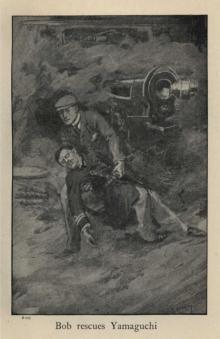 Kobo: A Story of the Russo-Japanese War
Kobo: A Story of the Russo-Japanese War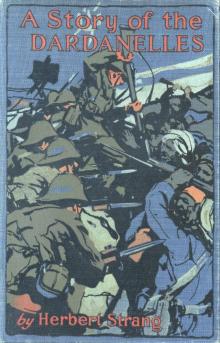 Frank Forester: A Story of the Dardanelles
Frank Forester: A Story of the Dardanelles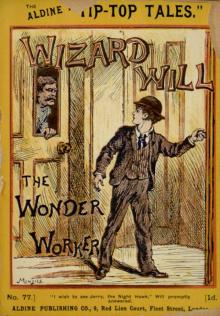 Wizard Will, the Wonder Worker
Wizard Will, the Wonder Worker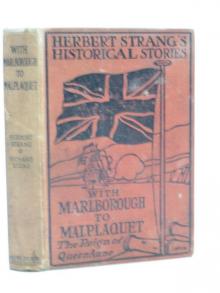 With Marlborough to Malplaquet: A Story of the Reign of Queen Anne
With Marlborough to Malplaquet: A Story of the Reign of Queen Anne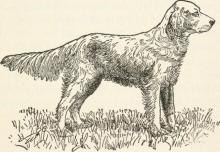 The Dogs of Boytown
The Dogs of Boytown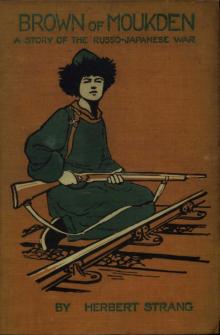 Brown of Moukden: A Story of the Russo-Japanese War
Brown of Moukden: A Story of the Russo-Japanese War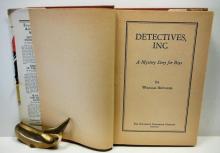 Detectives, Inc.: A Mystery Story for Boys
Detectives, Inc.: A Mystery Story for Boys Bright Ideas: A Record of Invention and Misinvention
Bright Ideas: A Record of Invention and Misinvention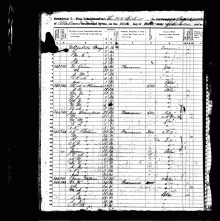 Lost in the Cañon
Lost in the Cañon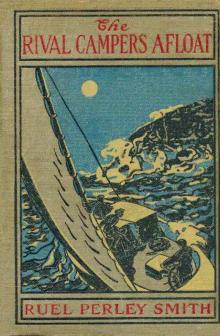 The Rival Campers Afloat; or, The Prize Yacht Viking
The Rival Campers Afloat; or, The Prize Yacht Viking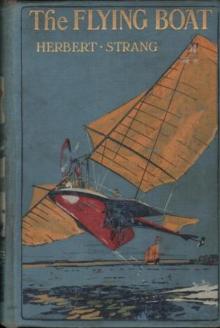 The Flying Boat: A Story of Adventure and Misadventure
The Flying Boat: A Story of Adventure and Misadventure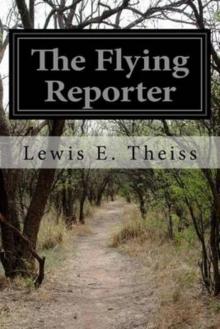 The Flying Reporter
The Flying Reporter Jack Hardy: A Story of English Smugglers in the Days of Napoleon
Jack Hardy: A Story of English Smugglers in the Days of Napoleon No Man's Island
No Man's Island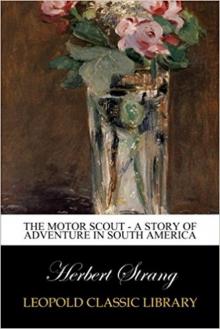 The Motor Scout: A Story of Adventure in South America
The Motor Scout: A Story of Adventure in South America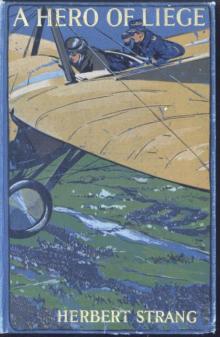 A Hero of Liége: A Story of the Great War
A Hero of Liége: A Story of the Great War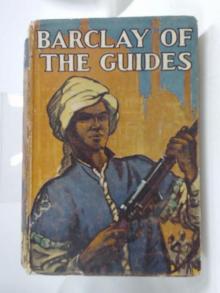 Barclay of the Guides
Barclay of the Guides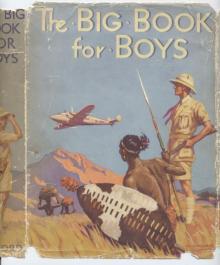 Carry On! A Story of the Fight for Bagdad
Carry On! A Story of the Fight for Bagdad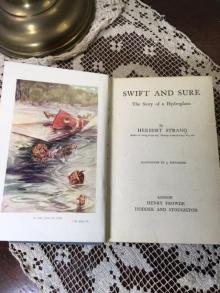 Swift and Sure: The Story of a Hydroplane
Swift and Sure: The Story of a Hydroplane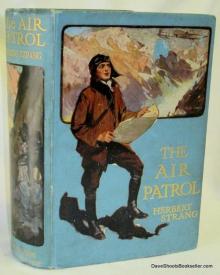 The Air Patrol: A Story of the North-west Frontier
The Air Patrol: A Story of the North-west Frontier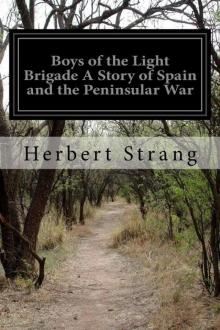 Boys of the Light Brigade: A Story of Spain and the Peninsular War
Boys of the Light Brigade: A Story of Spain and the Peninsular War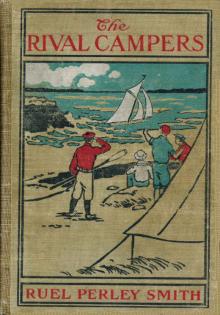 The Rival Campers; Or, The Adventures of Henry Burns
The Rival Campers; Or, The Adventures of Henry Burns Palm Tree Island
Palm Tree Island The Friends; or, The Triumph of Innocence over False Charges
The Friends; or, The Triumph of Innocence over False Charges Maggie's Wish
Maggie's Wish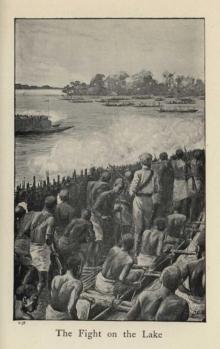 Tom Burnaby: A Story of Uganda and the Great Congo Forest
Tom Burnaby: A Story of Uganda and the Great Congo Forest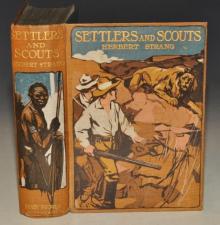 Settlers and Scouts: A Tale of the African Highlands
Settlers and Scouts: A Tale of the African Highlands In Clive's Command: A Story of the Fight for India
In Clive's Command: A Story of the Fight for India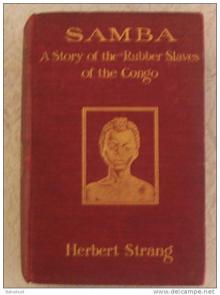 Samba: A Story of the Rubber Slaves of the Congo
Samba: A Story of the Rubber Slaves of the Congo The Auto Boys' Quest
The Auto Boys' Quest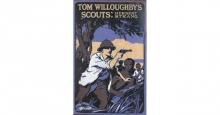 Tom Willoughby's Scouts: A Story of the War in German East Africa
Tom Willoughby's Scouts: A Story of the War in German East Africa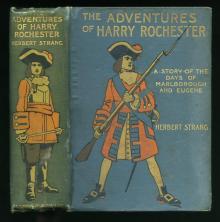 The Adventures of Harry Rochester: A Tale of the Days of Marlborough and Eugene
The Adventures of Harry Rochester: A Tale of the Days of Marlborough and Eugene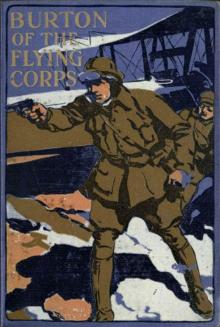 Fighting with French: A Tale of the New Army
Fighting with French: A Tale of the New Army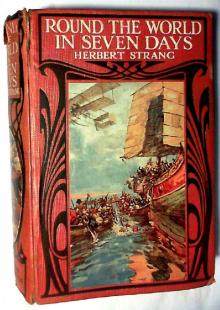 Round the World in Seven Days
Round the World in Seven Days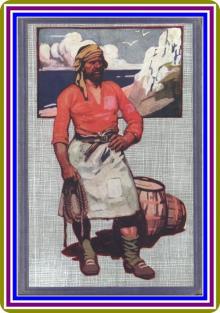 The Adventures of Dick Trevanion: A Story of Eighteen Hundred and Four
The Adventures of Dick Trevanion: A Story of Eighteen Hundred and Four